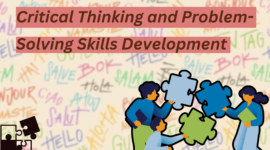Books are more than just tools for passing exams; they are gateways to vast worlds of knowledge and imagination. This article delves into why books remain crucial in educational and personal development, despite the digital age’s allure.
Cognitive and Academic Advancements Through Reading

Reading isn’t just a leisure activity; it’s a brain exercise that enhances mental flexibility and understanding. For students, regular reading habits are linked to improved academic performance. Books not only complement educational curriculums but also develop critical thinking and problem-solving skills, essential for lifelong success.
- Expanding Horizons: Engaging with diverse texts broadens perspectives and cultivates critical thinking.
- Academic Excellence: Students who read consistently often achieve higher academic results due to better comprehension and analytical skills.
Emotional and Social Benefits of Reading

Books do more than educate; they empathize and entertain. Through stories, students explore complex emotions and societal issues, gaining deeper emotional intelligence and empathy.
- Empathy and Understanding: Reading about different lives and cultures fosters empathy and understanding, crucial in our global society.
- Stress Reduction: Immersing oneself in a book can be a great way to unwind and manage the stresses of daily life.
Building a Lifetime Habit: The Importance of Books Reading

Instilling the habit of reading in students equips them with tools for success well beyond their school years. Schools and parents play pivotal roles in fostering this essential habit.
- Long-Term Benefits: Regular readers often exhibit better writing skills, a richer vocabulary, and an ability to navigate complex information.
- A Foundation for Future Success: The discipline and concentration developed through reading are invaluable traits that benefit all areas of life.
Conclusion: Why Books Matter Now More Than Ever
In an age where digital distractions are omnipresent, the importance of books in shaping intelligent, empathetic, and well-rounded individuals cannot be overstated. Encouraging a culture of reading among students is not just about academic benefits; it’s about nurturing a well-informed, thoughtful, and compassionate future generation.
Frequently asked questions
Q1: How do books contribute to cognitive and academic advancements?
Books enhance mental flexibility, understanding, and critical thinking, improving students’ academic performance and problem-solving skills.
Q2: What role do books play in developing critical thinking?
Engaging with diverse texts broadens perspectives and cultivates critical thinking, essential for lifelong success.
Q3: How does reading regularly affect academic performance?
Students who read consistently often achieve higher academic results due to better comprehension and analytical skills.
Q4: Can reading improve emotional intelligence and empathy?
Yes, reading about different lives and cultures fosters empathy and understanding, crucial in our global society.
Q5: What are the emotional benefits of reading?
Reading can help manage stress, unwind, and explore complex emotions, leading to better emotional intelligence.










Education Related Hindi Thought The Girl On The
Train Book Characters
My site … pdf books
Reading Book is obviously very important to shape up.